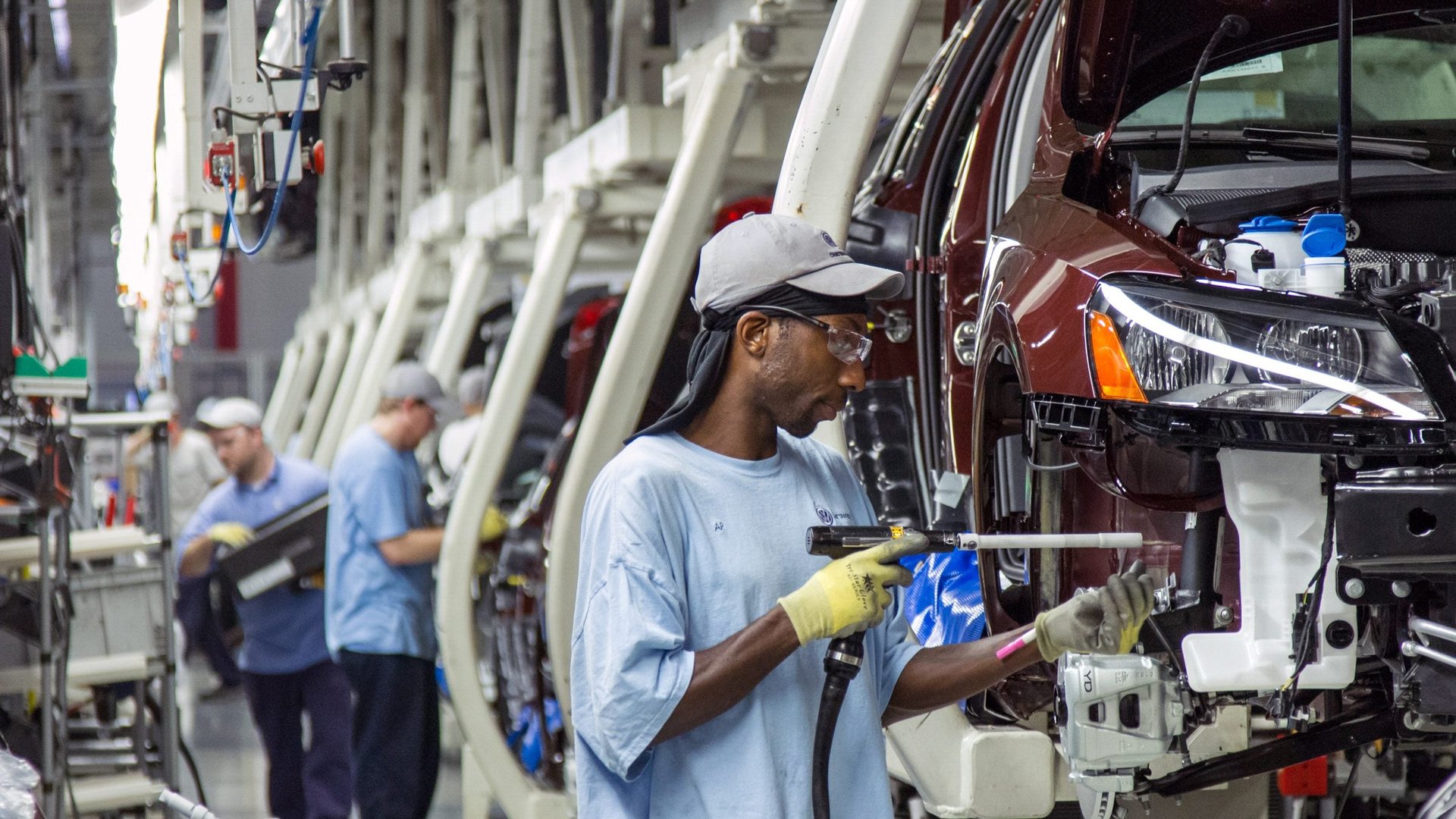The US’s proposals for bringing back auto jobs would more likely kill them instead
Conservative politicians in Washington DC, including president Donald Trump, are intent on bringing back jobs that have migrated to Mexico.


Conservative politicians in Washington DC, including president Donald Trump, are intent on bringing back jobs that have migrated to Mexico.
Their goal is to make American labor more attractive to US companies, by imposing taxes and tariffs on imports that were made in Mexico. But that approach would probably kill thousands of US auto jobs, says Boston Consulting Group, BCG. These days, cars and their parts are made throughout North America. What happens in one part of the supply chain affects the rest of it.
Take the proposed (and widely criticized) border-adjustment tax proposal, which would result in higher taxes for imports. If it was applied at a 15% rate, it would raise the cost of making a car by $1,000, according to the BCG analysis. That’s too small a difference to warrant moving production from Mexico to the US, but large enough to force manufacturers to adjust—at the expense of US suppliers.
Even with the taxes or tariffs, it’s still cheaper for car makers and their suppliers to keep production in Mexico than to transfer whole factories north of the border, according to BCG’s detailed analysis of the auto industry. “It’s still more rational to stay where you are,” said Xavier Mosquet, a BCG partner who led the study, commissioned by the US Motor & Equipment Manufacturers Association. “Nobody wants to build a plant.”
But to make up for the higher cost, car makers would likely offer vehicles with fewer features, such as rear cameras and automatic braking, according to Mosquet. That would reduce orders for the American workers elsewhere on the supply chain. BCG projects that 20,000 to 45,000 US jobs could be lost this way if the US adopts a 15% border adjustment tax.
Withdrawing from the North American Free Trade Agreement, which Trump has threatened to do, would have a similar effect. It would raise costs by $1,200 per car, and kill up to 50,000 jobs, according to the study.
Overall, the measures would make the US less competitive. The US’s Asian and European rivals also rely on imports from lower-wage countries. Losing access to cheaper parts would be a handicap for US automakers.
And that’s not counting the likely retaliation from Mexico (and Canada) if the US implements measures intended to block their exports. American auto firms might encounter similar obstacles when shipping their products to those countries.